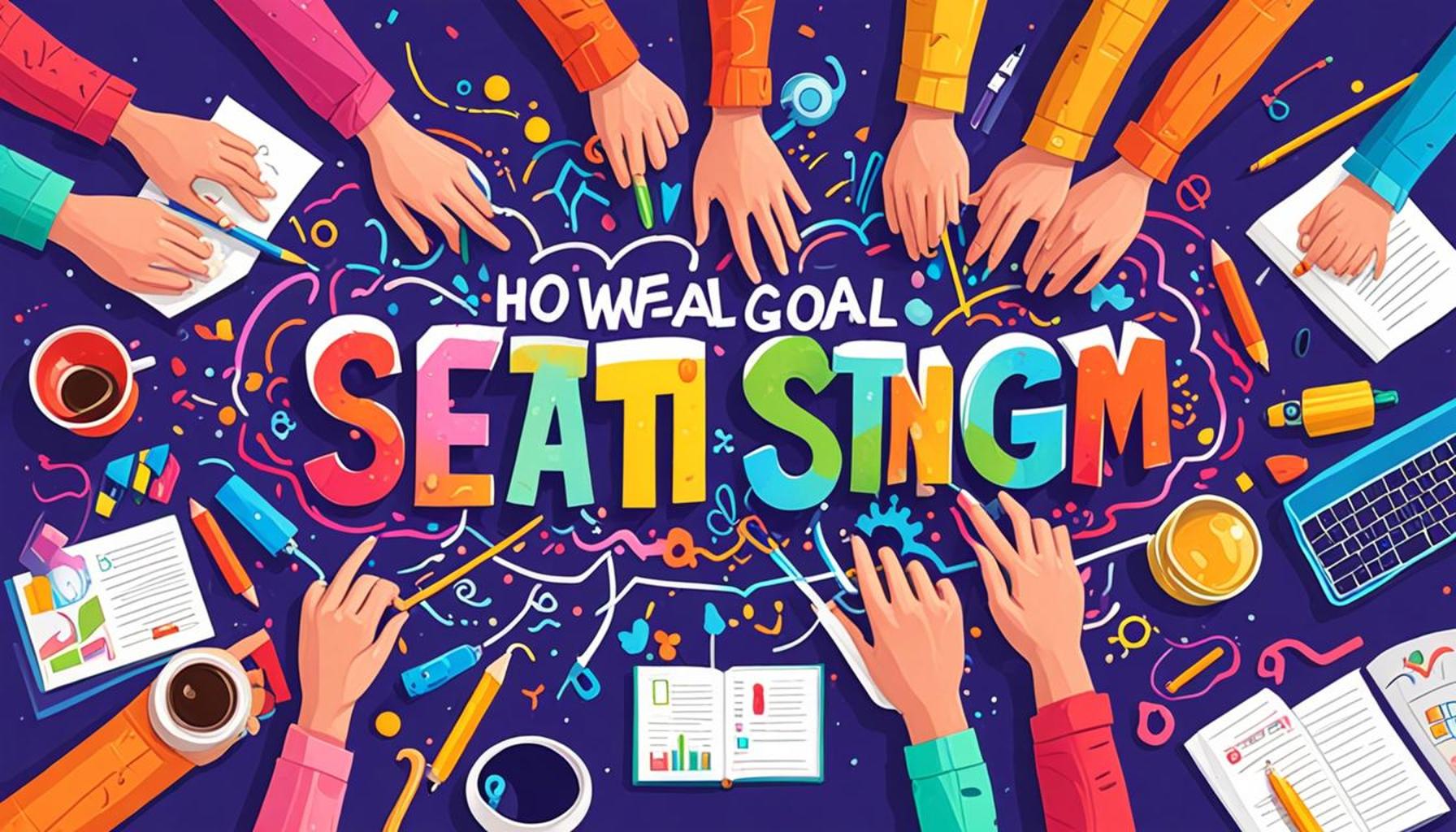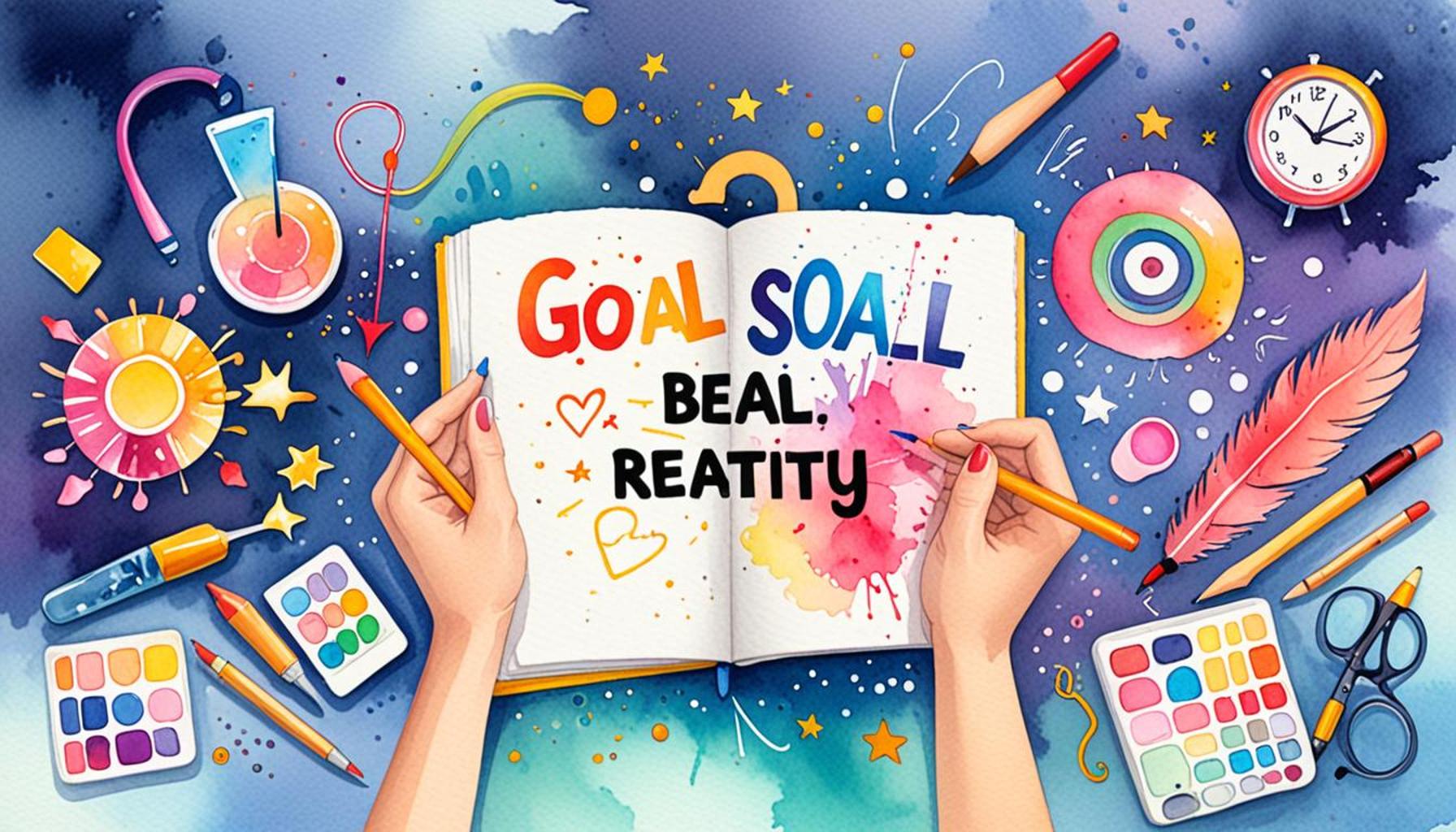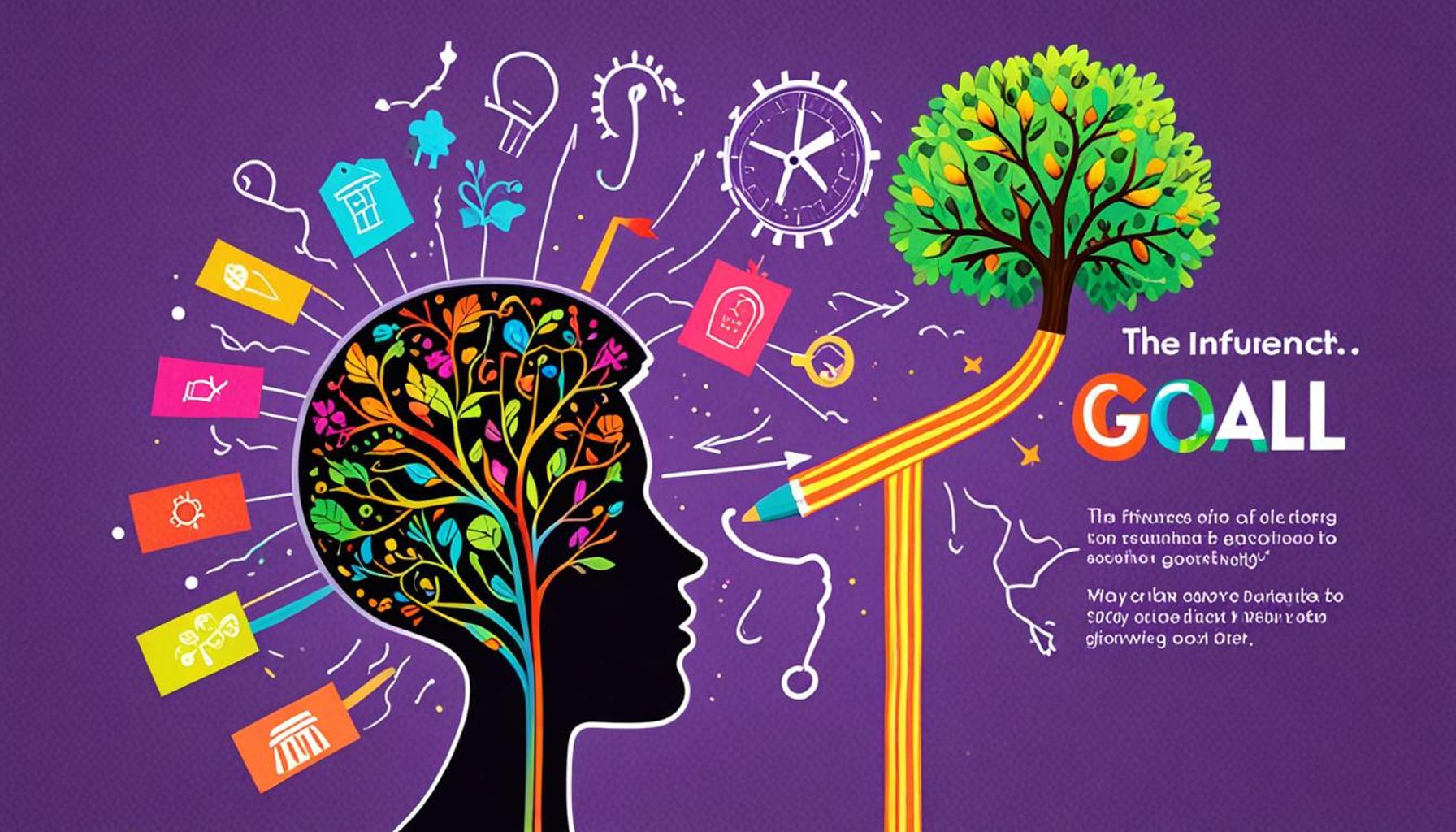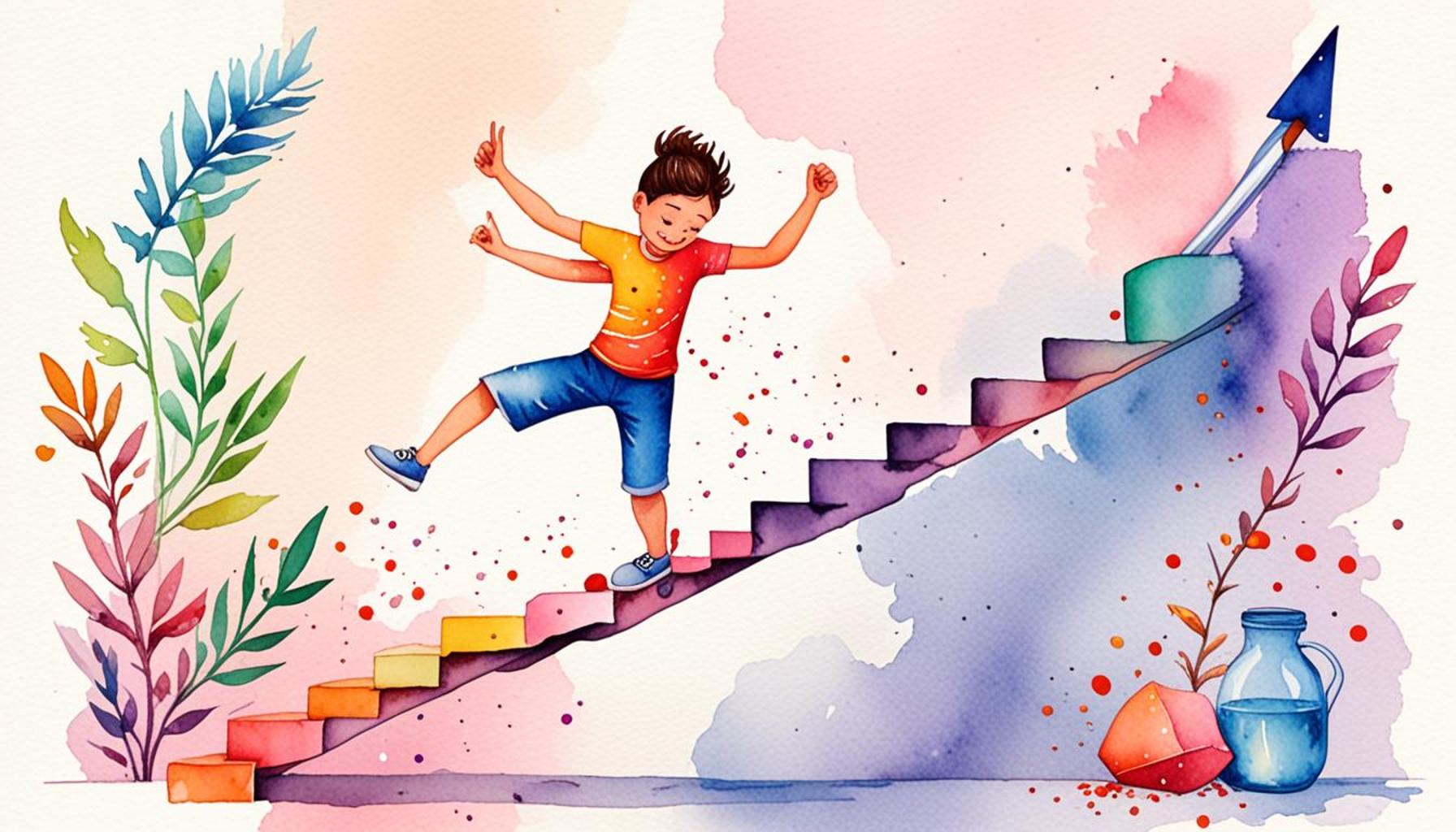How setting goals can be used to cultivate empathy and teamwork collaboration

The Importance of Goal Setting in Building Empathy and Teamwork
In an era marked by rapid globalization and technological advancement, the necessity for empathy and teamwork collaboration cannot be overstated, particularly in diverse societies like Nigeria. The various communities within this vibrant nation face unique challenges that often require more than individual initiatives; they demand collective action and understanding. Establishing clear and achievable goals is essential in creating an environment that not only fosters cooperation but also enhances interpersonal relationships among team members.
Goal-setting serves as a powerful catalyst for transforming team dynamics. By aligning individual ambitions with a collective mission, teams can experience profound shifts in how they interact and function. Key aspects to consider include:
- Shared Objectives: When goals are clearly defined, they provide a common purpose for all team members. For example, if a community organization in Lagos sets a goal to improve local education by increasing access to resources, everyone involved can rally around that purpose, leading to more cohesive and motivated efforts.
- Open Communication: The goal-setting process naturally encourages dialogue among team members. This environment allows individuals to express their thoughts, feelings, and concerns openly. A youth group in Kano, for instance, could engage in discussions about why they want to address youth unemployment, facilitating deeper understanding and collaboration between members with varying life experiences.
- Mutual Accountability: With shared goals comes a sense of mutual accountability. Team members are encouraged to support one another, which builds trust and solidarity. When everyone understands their role in achieving a goal, they are more likely to hold each other accountable, thus strengthening the team as a whole.
Nigeria’s rich tapestry of cultures and backgrounds highlights the potential for empathetic practices to bridge divides. Engaging in collective goal-setting allows individuals from different backgrounds to appreciate varying perspectives. When a community in Enugu comes together to set a common goal, such as creating a cleaner environment, they learn to see past their differences, leading to enriched collaboration and lasting relationships.
The intersection of goal setting with empathy and teamwork reveals its surprising impact on community dynamics. Achieving intentional, shared ambitions can lead to sociocultural transformations that extend beyond workplace boundaries and influence broader community interactions.
Join the Journey
As we explore how structured goal setting can reshape relationships, consider how these shared aspirations can drive collective success in your environment. Whether it’s in a corporate office in Abuja or a grassroots initiative in Port Harcourt, the potential for transformative teamwork through empathy is immense. Together, let’s unlock the power of collaboration and foster an environment where shared aspirations lead to meaningful change.
LEARN MORE: This related article may interest you
Transforming Team Dynamics through Goal Setting
The process of goal setting is pivotal in establishing a framework through which individuals can learn to appreciate and understand one another. It ignites a journey towards empathy and richer collaboration among team members. In Nigeria, where cultures and perspectives are both diverse and intricate, goal setting becomes a bridge that connects individuals from different backgrounds. By clearly articulating shared aspirations, teams foster an environment ripe for mutual respect and understanding, thereby enhancing the overall teamwork dynamic.
One of the most compelling aspects of setting goals is the establishment of shared values. These values serve as the foundation for collaboration, as they unite team members under a common banner. When a goal is defined, such as improving health access in rural communities, it encourages individuals to consider the unique challenges faced by their peers. As a result, they can express compassion towards one another while working together to devise effective solutions. Utilizing shared values aligns the group’s efforts, thus creating a more cohesive and empathetic team environment.
Furthermore, setting SMART goals—specific, measurable, achievable, relevant, and time-bound—can help clarify expectations among team members. This clarity not only enhances accountability but also allows team members to draw on each other’s strengths. For example, if a startup in Lagos sets a goal to launch a new product within six months, roles can be assigned based on individual skills. This strategic alignment encourages open communication and reinforces the understanding that each member’s contributions are integral to the success of the collective effort.
- Inclusive Participation: Involving all team members in the goal-setting process encourages diverse perspectives and enhances engagement. When everyone feels heard, the result is a deeper connection among team members, which is essential for cultivating teamwork collaboration.
- Empathy through Understanding: Setting collective goals helps team members better understand each other’s motivations and challenges. By dissecting what achieving a goal means for each individual, empathy naturally blossoms.
- Problem-Solving Together: When obstacles arise, a team that has set goals together is more likely to approach challenges collaboratively. This cooperation builds resilience and promotes a sense of solidarity, as team members learn to lean on each other for support and guidance.
In Nigeria’s multicultural milieu, the essence of empathy transcends borders and backgrounds. Implementing structured goal-setting sessions can lead to transformative experiences where team members learn to navigate conflict, celebrate successes, and empathize with one another’s struggles. As these practices become ingrained in behavior, they not only enhance teamwork but also contribute significantly to the fabric of community life, linking individuals through a shared and common purpose.
Understanding the Role of Goals in Team Dynamics
Setting goals is not merely about achieving personal or professional benchmarks; it is also a fundamental practice that can enhance empathy and foster team collaboration. When teams set shared objectives, they create a common understanding and a vision that goes beyond individual aspirations. This collaborative environment encourages members to view things from each other’s perspectives, making empathy a natural byproduct of their interactions.
The Influence of SMART Goals on Teamwork
Utilizing the SMART criteria (Specific, Measurable, Achievable, Relevant, Time-bound) when setting group goals can drastically improve teamwork. For instance, when a team agrees on a specific project deadline, they are not just aligning their tasks but also understanding the workload and challenges faced by their colleagues. This shared sense of responsibility can enhance communication and reduce misunderstandings.
Empathy Through Joint Problem-Solving
Moreover, setting goals often involves tackling challenges together. When teams encounter obstacles while pursuing their targets, they engage in joint problem-solving, which demands input from all members. This collaborative effort nurtures a culture of openness and encourages individuals to express their thoughts and feelings, further deepening empathic connections among team members. Engaging in such processes transforms a group into a cohesive unit, where collaboration thrives.
Recognizing Individual Contributions to Collective Goals
Another important aspect is recognizing individual contributions to collective objectives. When team members see that their unique strengths and perspectives are valued in reaching a shared goal, it reinforces their sense of belonging and commitment to the team. This recognition fosters an environment where empathy flourishes, as members become more attuned to each other’s contributions and struggles.
| Category | Description |
|---|---|
| Shared Objectives | Aligns team members towards a unified vision, enhancing understanding and collaboration. |
| Joint Problem-Solving | Encourages open communication and empathetic engagement during challenges, fostering deeper connections. |
In summary, embracing goal-setting not only drives performance but also creates vital opportunities for strengthening empathy within teams, which is crucial for successful collaboration.
SEE ALSO: Click here to read another article
Nurturing Empathy through Collective Vision
Establishing a collective vision is at the heart of effective teamwork and empathy cultivation. When teams come together to set goals, they are not just creating targets; they are visualizing a shared future. This shared vision can be particularly impactful in a diverse country like Nigeria, where communities and individuals bring their unique life experiences to the table. For instance, when a team sets a goal to enhance educational accessibility in underprivileged areas, they must first acknowledge the different realities faced by students across various regions. Such understanding fosters openness and a desire to support each other in overcoming barriers.
The concept of team accountability also plays a crucial role in promoting empathy. When team members hold each other accountable for their contributions towards a common goal, it opens up pathways for constructive feedback and collaboration. This means that challenges faced individually are turned into collective responsibilities, inviting teams to discuss ways to alleviate burdens. In Nigeria’s dynamic business environment, where collaboration is key to success, creating an accountable team atmosphere encourages individuals to show genuine concern for their peers’ challenges and achievements.
- Celebrating Diverse Strengths: By recognizing the unique talents and perspectives of each team member, organizations can amplify a sense of belonging. For instance, a healthcare initiative involving both doctors and traditional healers can yield rich discussions and innovative solutions aimed at community well-being. Celebrating individual strengths within the context of a team goal encourages empathy, as members learn to value what each brings to the collective effort.
- Empowering Shared Leadership: Teams that encourage everyone to take on leadership roles in specific areas of goal achievement can lead to increased empathy. When members guide their peers, conveying their knowledge and skills, it promotes mutual respect. An example would be a project in which one team member passionate about digital marketing spearheads a campaign, naturally drawing on the talents of others who specialize in graphic design or analytics. This empowerment fosters a culture where every contribution is cherished.
- Feedback Loops: Creating opportunities for ongoing feedback encourages vulnerability and honest communication. Regular check-ins about progress towards goals provide a platform for team members to express their struggles, leading to deeper understanding and support among peers. A project aimed at reducing youth unemployment, for instance, can include monthly meetings to assess how individuals’ roles align with overarching objectives, creating space for empathetic dialogue.
The practice of setting goals is transformative; it can shift mindsets and redefine team interactions. By deliberately fostering an environment where everyone contributes to the setting and the pursuit of goals, organizations in Nigeria can cultivate empathy as a shared value. As team members embark on their goal-directed journey, they grow not only towards achieving objectives but also towards building meaningful relationships that are foundational for resilience and success in various projects. This cycle of goal-setting and empathetic engagement can ultimately lead to deeper community connections, promoting collaboration that transcends team boundaries.
YOU MAY ALSO LIKE: Read read another article
Conclusion: The Transformative Power of Goal Setting
In a rapidly evolving society like Nigeria, the intentional act of setting goals transcends mere milestones; it serves as a catalyst for cultivating empathy and enhancing teamwork collaboration. As teams engage in a realistic appraisal of their ambitions, they become more attuned to the diverse backgrounds and perspectives that each member brings to the table. The process of goal-setting not only clarifies objectives but also nurtures an environment of trust, support, and shared responsibility.
Through mechanisms such as team accountability, celebrating individual strengths, and fostering an atmosphere of open communication, teams are better equipped to address the unique socioeconomic challenges within various Nigerian communities. Such practices encourage members to listen actively, offer support, and generate innovative solutions that cater to collective aspirations. The collaborative spirit ignited by shared objectives not only amplifies empathy but also strengthens interpersonal relationships, boosting morale and creating a sense of belonging.
Moreover, the continuous feedback loops established throughout the goal-setting process empower team members to share their vulnerabilities. This openness cultivates a culture of understanding, where challenges are collectively faced and victories are celebrated as a community. As we venture into a future marked by complexity and diversity, leveraging goal-setting as a tool for empathy and collaboration is not merely beneficial—it is essential. Ultimately, teams that harness this potential are poised to create not only impactful projects but also enduring connections that enrich both individual lives and the broader community fabric.


